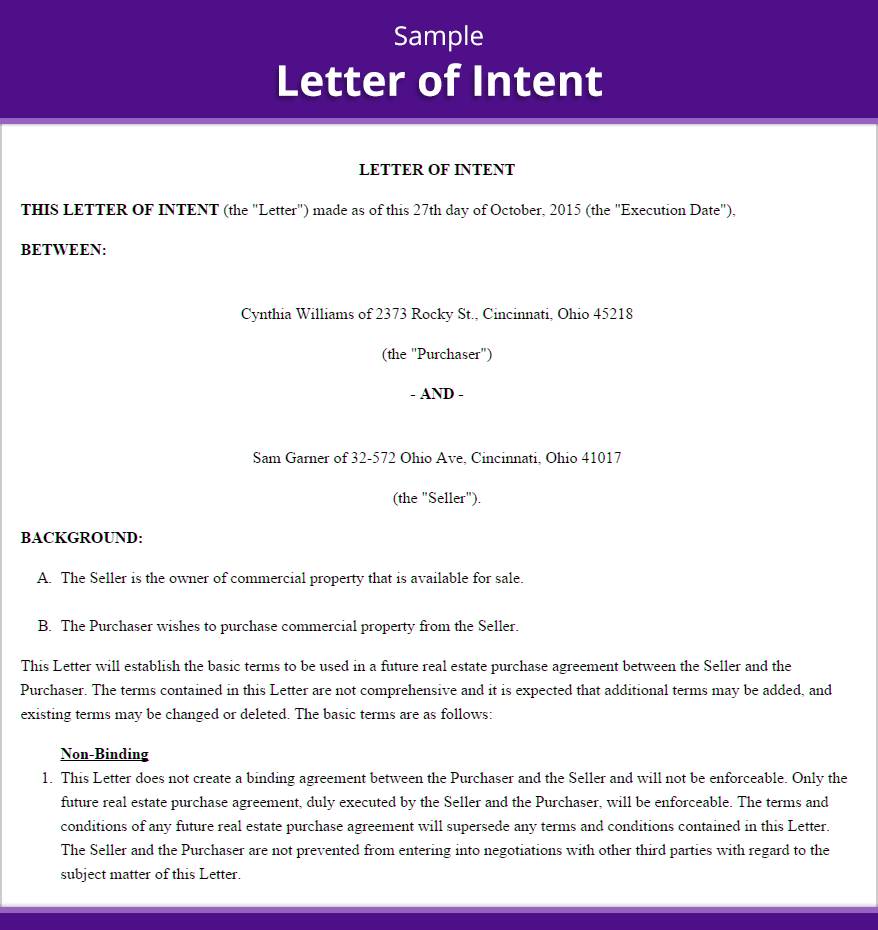LOI stands for the letter of intent is a very useful and widespread tool, both nationally and internationally. It mainly serves to regulate future negotiations between the parties, with a view to a contract that the parties have begun to negotiate but have not yet concluded.

As such, the LOI is a non-binding agreement - with the exception of certain elements such as confidentiality or exclusivity obligations - and therefore does not generally give rise to any liability on the part of the parties. But it happens quite often that letters of intent contain - without the parties being fully aware of it - binding obligations, which relate to the content of the deal that the parties are about to conclude; in this case, the LOI is transformed into a real contract (definitive or preliminary), with consequent responsibilities in the event of non-fulfillment.
The letter of intent (LOI) is a very useful and widespread tool especially in the phase of negotiations that precede the signing of a contract, both nationally and internationally.

Generally the LOI constitutes a purely preparatory agreement, which is signed when the parties have already started a negotiation aimed at a possible final contract (for example the acquisition or rental of a company, the purchase of a share in the company, a joint venture agreement, license agreement, etc.), but have not yet defined the essential aspects of this agreement.
The LOI essentially has the following purposes:

The content of a letter of intent can be very varied. We tend to believe that the LOI is always a non-binding agreement, which therefore does not expose the company to liability and risks from a legal point of view; and for this reason, it is often prepared in a superficial or hasty way. But in reality, it is not always true that the LOI is a non-binding document.
When the LOI regulates only the aspects indicated above, it is actually not binding, ie it does not imply the assumption of contractual obligations. Also in this case, however, in the event that one of the parties does not comply with the provisions of the LOI (and therefore for example does not carry out a due diligence within the established time frame, or suddenly refuses to continue the negotiations), it could incur responsibility pre-contractual with the other party, and therefore could be required to compensate the other party for the costs of the negotiations and the loss of favorable contractual opportunities.
But often the letters of intent contain, in addition to the above, also other agreements, such as:
These agreements, unlike the previous ones, are binding between the parties, and therefore their non-fulfillment is a source of contractual liability, with the consequent obligation of the defaulting party to compensate the damage (in this case in full measure, or equal to the emerging damage and to loss of profit).
Furthermore, it happens quite often that letters of intent also contain other binding obligations, which relate to the content of the deal that the parties are about to conclude. In this case, despite the name, we are not faced with a simple LOI, but a real binding agreement.
 What is P R bond?
27/11/2023
What is P R bond?
27/11/2023
 What is Compulsory Convertible Debentures?
27/11/2023
What is Compulsory Convertible Debentures?
27/11/2023
 Dynamics of Central Asian Economies
17/11/2023
Dynamics of Central Asian Economies
17/11/2023